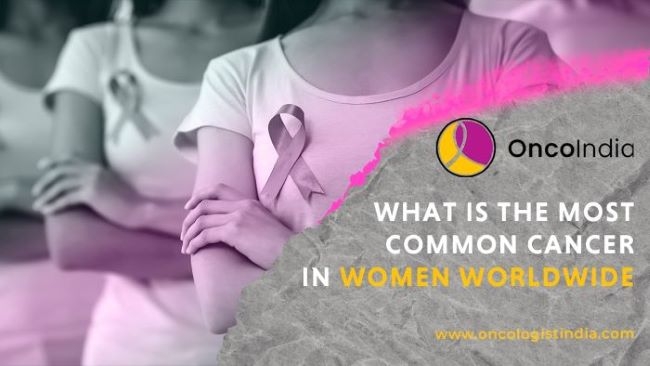The word Cancer is not just a disease, but one of the most challenging and life-threatening phases of any individual’s life. It’s a time when a person needs immense emotional and physical support. Right medication and treatment are crucial during this phase, as are courage, hope and willpower, especially for women. Amongst many forms of cancer, there is one that stealthily affects women worldwide - Breast Cancer.
Breast cancer makes up 12.5% of all new yearly cancer cases worldwide, making it the most common cancer globally.
Breast cancer stands as the most prevalent form of cancer among women globally, transcending geographical boundaries and socio-economic disparities. Its insidious nature lies in its ability to develop silently, often eluding detection until advanced stages.

The Extent of the Issue
Breast cancer doesn't discriminate by age, but the chances of getting it increase as you grow older. Some women have a higher risk than others, but all women should understand the risks and how to lower them.
According to the World Health Organization, in 2022, there were 2.3 million women diagnosed with breast cancer globally, resulting in 670,000 deaths. This disease knows no boundaries, affecting women in every country from puberty onward, with rates rising as they age.
Furthermore, global estimates highlight significant disparities in breast cancer burden based on human development. In countries with a very high Human Development Index (HDI), 1 in 12 women will receive a breast cancer diagnosis in their lifetime, and tragically, 1 in 71 women will succumb to it.
Signs of Breast Cancer
How is Breast Cancer Diagnosed?
There are so many tests used to diagnose breast cancer, but all do not apply to every individual. The Oncologist will consider a couple of factors when choosing a diagnostic test. They are:
the tests usually start when the doctor notices a lump or abnormal calcifications on a screening mammogram. Sometimes, the person notices a swollen breast or a lump under the arm. Here are the tests used to diagnose breast cancer or to check after someone gets diagnosed with breast cancer.
Breast Ultrasound - A machine that uses sound waves to make pictures, called sonograms, of areas inside the breast.
Diagnostic Mamogram - If you have an issue in your breast, like lumps, or if a part of your breast looks strange on a mammogram, doctors might ask you to get a diagnostic mammogram. It's like a closer X-ray of the breast.
Breast Magnetic Resonance Imaging - It's a body scan using a magnet connected to a computer. The MRI scan takes detailed pictures inside the breast.
Biopsy - This test takes out tissue or fluid from the breast to look at it closely under a microscope and do more testing. There are different types of biopsies.
Treatment
The treatment for breast cancer will depend upon the specific type of breast cancer. The doctor would consider the stage of the cancer how fast it’s growing and if the cancer cells are sensitive to hormones.
With so many treatment options available coming to a decision can be quite overwhelming.
Treatment for breast cancer usually begins with surgery to take out the cancer followed by radiation, chemotherapy, and hormone therapy. Some might get chemotherapy or hormone therapy before surgery to help shrink the cancer and make it easier to remove.
Dr. Shivakumar Uppala an Oncologist from Trust in Hospital, one of the leading hospitals in Bangalore, states that chemotherapy and radiation therapy are often used to treat breast cancer because they have been proven to effectively destroy cancer cells and stop them from growing.
Through heightened awareness, access to good healthcare, and sustained research efforts, we can turn the tide against this silent predator. Let us safeguard the health and well-being of women everywhere, ensuring a future where breast cancer no longer casts its shadow upon our lives.
Blog Reviewed By: Dr. Shiva Kumar Uppala